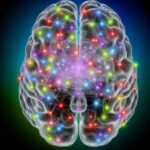Attention Deficit Hyperactivity Disorder (ADHD) is a neurodevelopmental disorder that affects millions of individuals worldwide. Characterized by symptoms such as inattention, hyperactivity, and impulsivity, ADHD can significantly impact daily functioning and quality of life. However, with the right strategies and support, individuals with ADHD can manage their symptoms and thrive. This article explores practical methods for dealing with ADHD.
Understanding ADHD
ADHD is a chronic condition that typically begins in childhood and can continue into adulthood. It involves a range of symptoms that can vary in severity and impact different areas of life, including academics, work, and relationships. Understanding ADHD and its effects is the first step towards effective management.
Common Symptoms of ADHD
- Inattention: Difficulty sustaining attention, following through on tasks, and organizing activities.
- Hyperactivity: Excessive fidgeting, restlessness, and difficulty staying seated.
- Impulsivity: Acting without thinking, interrupting others, and difficulty waiting for one’s turn.
The Importance of Managing ADHD
- Improved Academic and Work Performance: Effective strategies can help individuals stay focused and organized, leading to better performance in school and work.
- Enhanced Relationships: Managing ADHD can improve communication and reduce conflicts with family, friends, and colleagues.
- Better Mental Health: Proper management can reduce the risk of anxiety, depression, and low self-esteem.
- Increased Life Satisfaction: With the right tools and support, individuals with ADHD can lead fulfilling and successful lives.
Effective Strategies for Managing ADHD
- Seek Professional Help
Consult with healthcare professionals who specialize in ADHD. A comprehensive evaluation can provide an accurate diagnosis and inform treatment options. Professionals such as psychiatrists, psychologists, and licensed counselors like Emmanuel “Manny” Tamarez, LPC, ADHD-CCSP, C-DBT, can offer valuable guidance.
- Medication Management
Medication can be an effective part of ADHD treatment. Stimulant medications, such as methylphenidate and amphetamines, are commonly prescribed and can help improve focus and reduce impulsivity. Non-stimulant medications are also available for those who may not respond well to stimulants. Work with your healthcare provider to find the right medication and dosage.
- Behavioral Therapy
Behavioral therapy can help individuals with ADHD develop coping strategies and improve organizational skills. Cognitive Behavioral Therapy (CBT) is particularly effective in addressing negative thought patterns and behaviors. Therapy can also help manage comorbid conditions such as anxiety and depression.
- Establish a Routine
Creating a structured daily routine can help manage ADHD symptoms. Consistency provides predictability and reduces the likelihood of forgetting tasks. Use planners, calendars, and reminders to stay organized and on track.
- Set Clear Goals
Set clear, achievable goals to provide direction and motivation. Break larger tasks into smaller, manageable steps and celebrate progress. Goal-setting can help maintain focus and build confidence.
- Practice Time Management
Effective time management is crucial for individuals with ADHD. Use techniques such as time blocking, prioritizing tasks, and setting deadlines. Break tasks into timed intervals (e.g., the Pomodoro Technique) to maintain focus and productivity.
- Minimize Distractions
Create an environment that minimizes distractions to improve concentration. Designate a quiet workspace, limit background noise, and reduce clutter. Use tools like noise-canceling headphones or white noise machines if necessary.
- Develop Healthy Habits
Healthy lifestyle habits can positively impact ADHD symptoms. Ensure adequate sleep, engage in regular physical activity, and maintain a balanced diet. Exercise, in particular, can improve focus and reduce hyperactivity.
- Use Organizational Tools
Utilize organizational tools such as to-do lists, apps, and planners to keep track of tasks and deadlines. Color-coding, labeling, and visual aids can also help organize information and materials.
- Practice Mindfulness and Relaxation Techniques
Mindfulness and relaxation techniques can help manage stress and improve focus. Practices such as meditation, deep breathing exercises, and yoga can promote relaxation and enhance emotional regulation.
- Educate Yourself and Others
Educate yourself about ADHD to better understand your condition and advocate for your needs. Informing family, friends, and colleagues about ADHD can foster empathy and support.
- Seek Support
Join support groups or seek counseling to connect with others who understand your experiences. Support groups provide a sense of community and shared resources, while counseling offers personalized strategies and emotional support.
Conclusion
Dealing with ADHD requires a comprehensive approach that includes professional support, medication management, behavioral strategies, and lifestyle adjustments. By implementing these effective strategies, individuals with ADHD can manage their symptoms, improve their quality of life, and achieve their goals. Remember, ADHD is a manageable condition, and with the right tools and support, individuals can thrive.






